14 Signs of a Vitamin D Deficiency

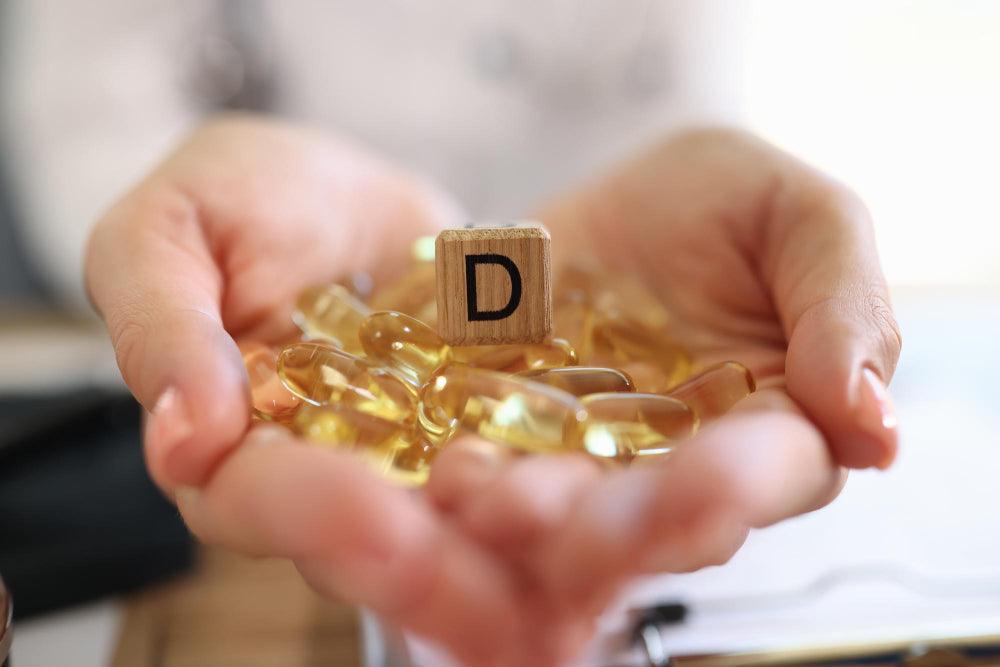
Related products

Vitamin D, often dubbed the 'sunshine vitamin', is a fat-soluble nutrient of paramount importance, orchestrating a myriad of physiological processes, from bone health to immune function. Alas, Vitamin D deficiency has burgeoned into a silent epidemic, with Public Health England suggesting that 1 in 5 people in the UK have low vitamin D levels. The crux of this deficiency often lies in the dearth of adequate sunlight exposure, dietary intake that falls short of recommendations, and lifestyle choices that inadvertently reduce Vitamin D synthesis.
Vitamin D reigns supreme in the pantheon of vitamins, due to its critical roles in calcium absorption, bone health, and immune system function. Dr. Hilary Jones, a leading GP, underscores its significance, "Vitamin D is crucial not just for bone maintenance but also for cell division and regulating the immune system's defences."
Sources of Vitamin D
The body's primary source of Vitamin D is the sun's UV rays; it catalyses the conversion of cholesterol in the skin into Vitamin D3. Dietary sources, though less significant, include oily fish, eggs, and fortified foods, while supplements stand as a bastion for those unable to secure their dose from the sun and diet alone. Vitamin D and D3 supplements are also very popular sources of vitamin D.
Recommended Intakes
The NHS prescribes 10 micrograms of Vitamin D per day for all individuals, a figure that spirals upwards for those at higher risk of deficiency. Without adequate Vitamin D, one's health tapestry can unravel, spotlighting the insidious nature of its deficiency.

14 Signs of a Vitamin D Deficiency
An insidious creeper, Vitamin D deficiency often manifests in a spectrum of symptoms, each a subtle whisper of the need for more sunlight, better diet, or supplementation. This deficiency can insinuate itself into the fabric of well-being, often going unnoticed until the body begins to signal through various distress signs.
1. Fatigue and Tiredness
One of the most pervasive signs of a Vitamin D shortfall is a perpetual sense of fatigue and weariness. Dr. Sarah Jarvis, a renowned GP and health campaigner, notes, "Patients often come to me with a deep sense of exhaustion, and after testing, we frequently find Vitamin D levels are the culprit." Research suggests that Vitamin D may play a role in sleep regulation and that deficiency could lead to disrupted sleep patterns, contributing to fatigue.
2. Bone Pain and Weakness
Vitamin D is the custodian of bone health, facilitating the absorption of calcium, which in turn is the cornerstone of strong and healthy bones. Dr. Francesca Cordeiro, an eminent professor at Imperial College London, warns, "Deficiency in Vitamin D can lead to a softening of the bones, known as osteomalacia, presenting as a deep bone ache and muscular weakness." This pain is not to be mistaken for the ordinary aftermath of a strenuous day but is a more profound and persistent discomfort, often overlooked until it escalates.
3. Muscle Weakness
Muscle weakness, without an apparent cause, can often be a harbinger of inadequate Vitamin D levels. This vitamin is essential not just for bone health but for proper muscle function as well. Dr. Michael F. Holick, a leading Vitamin D researcher, explains, "Vitamin D receptors are prevalent in muscle tissue, and a deficiency can weaken them, leading to an increased risk of falls in the elderly." This muscle weakness can insidiously erode the quality of life, making even simple tasks seem laborious.
4. Mood Changes, Including Depression
Vitamin D's influence transcends the physical, reaching into the realms of mental health. Dr. Adrian Martineau, a professor of respiratory infection and immunity, suggests that "there is a significant association between low Vitamin D levels and depression." He further elucidates that Vitamin D is thought to affect the function of dopamine and norepinephrine, neurotransmitters that are pivotal in regulating mood.
5. Poor Wound Healing
The intricacies of wound healing are complex, and Vitamin D plays a notable role in the process. A study in the 'Journal of Dental Research' indicated that dental patients with lower Vitamin D levels after surgery tended to have slower healing rates. "Vitamin D is a critical player in the body's wound-healing process," says Dr. Megan Rossi, a registered dietitian. "Its anti-inflammatory properties and role in infection defence may mean that without enough of it, wounds could take longer to heal."
6. Bone Loss
As the sentinel of skeletal strength, Vitamin D's deficiency can lead to a decrease in bone mineral density, rendering bones more susceptible to fractures. "The relationship between bone density and Vitamin D levels is well-documented," states Dr. Susan Lanham-New, Head of the Department of Nutritional Sciences at the University of Surrey. "Without sufficient Vitamin D, our bodies cannot absorb the calcium they need to keep bones strong, potentially leading to osteoporosis as we age." This bone loss is a stealthy process, often remaining undetected until a bone fractures, making proactive screening and prevention strategies paramount.
7. Hair Loss
Hair loss, particularly female pattern hair loss, can sometimes be traced back to a deficiency in Vitamin D. The nutrient plays a pivotal role in the proliferation and maturation of hair follicles. Dr. Manisha Singal, a chief medical officer and an expert in internal medicine, states, “Vitamin D is crucial for the regeneration of hair follicles, and a lack thereof can lead to significant hair thinning and loss.” This connection emphasises the holistic role of Vitamin D in bodily functions, extending beyond the commonly acknowledged bone and immune health.
8. Chronic Pain
Chronic pain, an enigmatic and pervasive ailment, has been linked to low levels of Vitamin D. Dr. David Samadi, a renowned urologist, elaborates, "Patients experiencing chronic pain conditions often have insufficient levels of Vitamin D, which can exacerbate their sensitivity to pain." Vitamin D's role in pain perception is an area of intense research, underscoring the importance of maintaining adequate levels for managing chronic pain syndromes.
9. Frequent Infections or Illness
A robust immune system is integral to maintaining health, and Vitamin D is a linchpin in its function. "Vitamin D receptors on immune cells act as a signal to the body to activate defences against infections," explains Dr. Cassandra Calabrese, a specialist in infectious diseases. A deficiency can compromise the immune system's ability to fight off pathogens, potentially leading to more frequent infections or illnesses.
10. High Blood Pressure
Hypertension, or high blood pressure, is a silent health threat that has been tentatively linked to Vitamin D levels. Observational studies, including those cited by the American Heart Association, have suggested a correlation between low Vitamin D levels and an increased risk of hypertension. "While the relationship is not yet fully understood," says cardiologist Dr. Sarah Brewer, "Vitamin D's effect on renin production and calcium metabolism might influence blood pressure regulation."
11. Gastrointestinal Issues
Vitamin D is not often the first suspect when diagnosing gastrointestinal troubles, yet its impact on gut health is significant. Gastroenterologist Dr. Rajeev Jain notes that "adequate Vitamin D is essential for maintaining the integrity of the gut mucosa." A deficiency may lead to an impaired barrier function of the digestive tract, potentially exacerbating conditions such as inflammatory bowel disease and increasing susceptibility to gut infections.
12. Weight Gain
The relationship between Vitamin D and weight management is both intricate and compelling. Some studies suggest that a lower Vitamin D status may be associated with an increased risk of weight gain and obesity. Endocrinologist Dr. Angela Leung posits that "Vitamin D may potentially influence fat cells and the storage of fats, thereby affecting energy balance and weight." However, this area of research is burgeoning, and causality remains to be conclusively established.
13. Reduced Endurance
Athletes and those engaged in regular physical exercise may find their endurance compromised by insufficient Vitamin D levels. This vitamin is crucial for muscle function and energy production, and as sports medicine expert Dr. Brian Sennett suggests, "Vitamin D deficiency can result in suboptimal muscle function and reduced endurance, potentially impacting athletic performance." Ensuring adequate Vitamin D intake is becoming an integral part of many athletes' nutrition strategies.
14. Neurological Symptoms
Emerging research hints at the potential influence of Vitamin D on neurological health. Neurologist Dr. David Coughlin observes, "Vitamin D has been implicated in brain health, with deficiencies potentially contributing to an increased risk of cognitive disorders, such as dementia." While the exact mechanisms are still under investigation, this suggests the broad-reaching implications of this vitamin on overall health.
Risk Factors for Vitamin D Deficiency
Limited Sun Exposure
In the UK's gloomier climes, sun exposure — the prima donna of Vitamin D sources — is woefully insufficient, particularly during the winter months. The British Dermatological Association echoes this concern, warning that "insufficient sunlight exposure can drastically reduce Vitamin D synthesis in the skin."
Age-Related Changes
Age begets wisdom but also a diminished ability to synthesise Vitamin D. The elderly have a reduced capacity to produce Vitamin D in their skin, compounding their risk of deficiency.
Health Conditions and Medications
Certain chronic conditions, such as Coeliac or renal diseases, impede Vitamin D absorption or metabolism. Similarly, medications like corticosteroids can deplete the body's reserves of this vital nutrient.
Dietary and Lifestyle Choices
Vegans and those with a penchant for a diet low in fish or dairy may find themselves in the throes of a deficiency. Coupled with lifestyle choices that favour indoor activities, the populace is unwittingly crafting a narrative of widespread deficiency, one that could be mitigated with mindful dietary and lifestyle adjustments.
Diagnosing Vitamin D Deficiency
Testing for Vitamin D Levels
Diagnosing a Vitamin D deficiency is a straightforward process involving a blood test to measure the level of 25-hydroxyvitamin D. This is the most accurate way to ascertain an individual's vitamin status. Tests for Vitamin D found on Welzo include:
Instant Vitamin D Test: This rapid test identifies Vitamin D deficiency by detecting 25-hydroxyvitamin D in the blood and provides results in 10 minutes. It costs £14.99 and has free delivery by a specific date if ordered within a given timeframe.
Vitamin D Blood Test: Priced at £29.00, this test measures the levels of Vitamin D in your blood and can suggest medication and supplements if a deficiency is indicated. Results are promised within 2 days, and next-day delivery is available.
Nutrition & Vitamin Blood Test: This broader test includes Vitamin D as part of a nutritional wellbeing profile, checking for other vitamins like B12 (Folate), blood sugar levels, iron levels, diabetes, and cholesterol levels. Similar to the Vitamin D test, it has a 2-day result turnaround and offers free next-day delivery.
Vitamin Deficiency Test: The typical turnaround for results is 24 hours from receipt at the Welzo laboratory, from Monday to Thursday. Depending on the laboratory's workload and specific biomarkers requested, results can take up to 5 days.
When to Consult a Healthcare Professional
Dr. Parijat De, a consultant in medicine, advises that "individuals experiencing symptoms such as chronic fatigue, bone pain, or mood changes should consult a healthcare professional to determine if Vitamin D deficiency is a factor."

Treatment and Prevention
Treatment for Vitamin D deficiency typically involves supplementation, guided by a healthcare professional. "The exact dosage of Vitamin D required for an individual can vary based on the severity of the deficiency and personal health factors," informs Dr. Tim Spector, a professor of genetic epidemiology.
Preventative strategies are paramount and include regular sunlight exposure, incorporating Vitamin D-rich foods into the diet, and considering supplementation, especially during the darker winter months.
Best foods and supplements for Vitamin D
The best dietary sources of Vitamin D are often animal-based foods, but there are some plant-based options and fortified foods as well. Here are some of the top choices:
- Fatty Fish and Seafood: Salmon, mackerel, tuna, and sardines are excellent sources of Vitamin D.
- Egg Yolks: Eggs from chickens that have been raised outside or fed Vitamin D-enriched feed have higher levels of Vitamin D.
- Mushrooms: Some varieties of mushrooms, especially those exposed to ultraviolet light, can provide good levels of Vitamin D.
- Fortified Foods: Many countries fortify foods like milk, orange juice, cereal, and oatmeal with Vitamin D.
- Liver: Beef liver provides a modest amount of Vitamin D.
- Cod Liver Oil: This is a traditional source of Vitamin D, also rich in omega-3 fatty acids.
As for supplements, Vitamin D comes in two main forms:
- Vitamin D2 (Ergocalciferol): This is typically derived from plant sources and is commonly used in fortified foods and supplements.
- Vitamin D3 (Cholecalciferol): This form is more effectively used by the body and is derived from animal sources or synthesised when skin is exposed to sunlight.
Supplements can be particularly important for those who have limited sun exposure, have darker skin, live in northern latitudes, or have absorption difficulties. It is always best to consult with a healthcare provider before starting any supplement regimen to determine the appropriate dosage and to ensure it won't interact with other medications or health conditions.
Potential Complications
The long-term ramifications of untreated Vitamin D deficiency are not to be underestimated. Dr. Adrian Martineau cautions, "Chronic Vitamin D deficiency can lead to serious health issues, including osteoporosis, cardiovascular disease, and an increased susceptibility to infections." Thus, vigilant monitoring and proactive management of Vitamin D levels are essential to forestall such adverse health outcomes.
People Also Ask
How do you feel when your vitamin D is extremely low?
When your Vitamin D levels are extremely low, you might experience significant fatigue and general tiredness, accompanied by aches in your bones and lower back. Muscle weakness and cramps can become frequent, alongside mood fluctuations that may manifest as depression. The body's ability to heal from wounds might be compromised, and in some cases, hair loss can occur.
Additionally, a notable decrease in Vitamin D can lead to an increased risk of infections due to its role in the immune system. If you suspect you have low Vitamin D levels, it's essential to seek medical advice for appropriate tests and treatments.
What's the worst that can happen with low vitamin D?
Severe and prolonged Vitamin D deficiency can lead to serious health complications, including:
- Osteomalacia and Osteoporosis: In adults, severe deficiency can cause osteomalacia, a condition characterised by softening of the bones, leading to bends and fractures. In the long term, it can contribute to osteoporosis, where bones become brittle and more prone to fractures.
- Rickets: In children, a severe lack of Vitamin D can cause rickets, a condition that affects bone development, leading to skeletal deformities.
- Immune System Dysfunction: Vitamin D is crucial for immune function, and low levels can compromise the body's ability to fight infections and may increase the risk of autoimmune diseases.
- Cardiovascular Issues: Some research suggests a link between Vitamin D deficiency and an increased risk of heart disease, hypertension, and heart failure.
- Cognitive Disorders: There may be an association between Vitamin D deficiency and an increased risk of cognitive decline and disorders such as Alzheimer's disease in older adults.
- Increased Mortality: Vitamin D deficiency has been linked with an increased risk of death from cardiovascular disease, cancer, and other causes.
It is important to address Vitamin D deficiency promptly with dietary changes, supplements, or exposure to sunlight, as directed by a healthcare provider, to avoid these severe outcomes.
Conclusion
The tapestry of symptoms associated with Vitamin D deficiency is both varied and far-reaching, affecting myriad aspects of health—from the strength of our bones to the vigour of our immune system. As we've traversed the 14 tell-tale signs, from the subtleties of mood fluctuations to the more overt bone maladies, the pervading theme is clear: Vitamin D is not merely a nutrient but a cornerstone of holistic health.
This 'sunshine vitamin', so often shadowed by its elusive nature, demands greater attention in our lives. Whether through the golden rays of the sun, the nourishment of our plates, or the judicious use of supplements, ensuring adequate Vitamin D levels is a commitment to our long-term well-being.
Dr. Elizabeth Pearce, a research scientist in endocrinology, summarises the sentiment by stating, "Adequate Vitamin D levels are a pillar of health maintenance, with deficiency prevention being far more manageable than the treatment of its complications." Thus, it is incumbent upon us to heed the whispers of our bodies, to seek professional advice when symptoms arise, and to adopt a lifestyle that places a premium on this vital nutrient.
As we close this discourse on Vitamin D deficiency, let us reflect on the power of prevention, the importance of awareness, and the undeniable benefits of securing a sufficient intake of this indispensable vitamin. It is a simple yet profound truth that the wellbeing of our future selves is sculpted by the health decisions we make today.















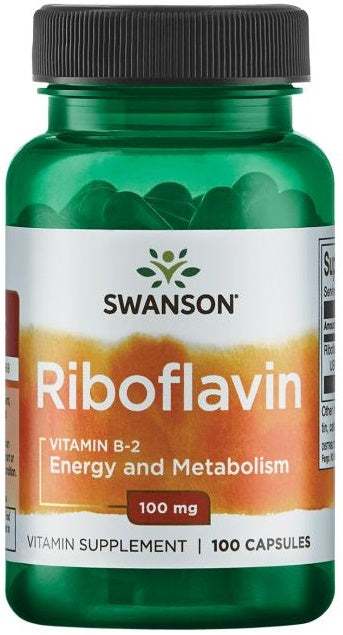

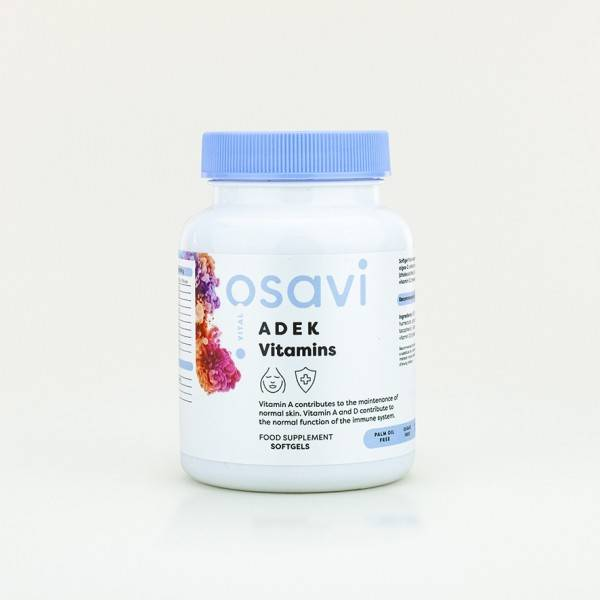

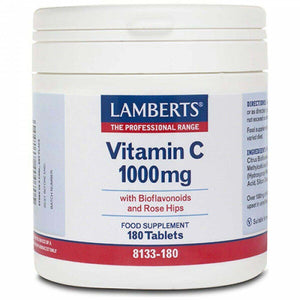





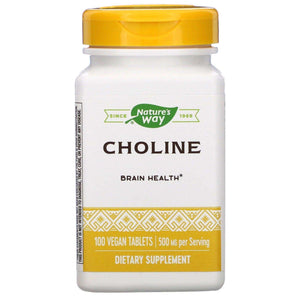








 Rated Excellent by 26,523+ Reviews
Rated Excellent by 26,523+ Reviews